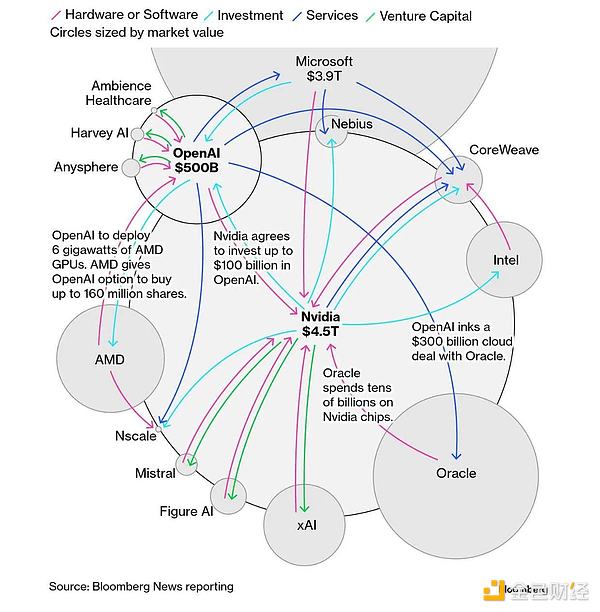The Fragile Pillars of Dollar Dominance: Trump's Fed Gambit and the Risks of Political Interference
- Trump's aggressive push to control the Fed risks undermining its independence, threatening U.S. monetary policy and dollar credibility. - Market reactions show dollar weakness (9% DXY drop), rising gold prices, and 4.9% Treasury yields, signaling inflation fears and policy instability. - Dollar's global reserve share fell to 58% by 2025 as central banks diversify into gold, yuan, and regional currencies, marking a structural shift. - Investors are advised to hedge via gold, TIPS, and emerging markets, as
The U.S. dollar's reign as the world's reserve currency has always rested on a delicate balance of trust, stability, and institutional credibility. But that balance is now under siege. President Donald Trump's aggressive push to control the Federal Reserve—most notably his attempt to remove Governor Lisa Cook—has ignited a firestorm of legal, political, and economic uncertainty. This isn't just about personalities; it's about the very foundation of U.S. monetary policy and the dollar's global standing.
The Fed's Independence at Risk
The Federal Reserve was designed to operate free from political pressure, a principle enshrined in its 1913 charter. But Trump's recent actions—firing Cook over alleged mortgage fraud (a claim she denies) and threatening to replace Fed Chair Jerome Powell—threaten to erode that independence. Cook's legal challenge to her removal is a critical test case. If Trump succeeds, it sets a dangerous precedent: future presidents could treat the Fed as a political tool, reshaping monetary policy to suit short-term agendas.
The implications are dire. A politicized Fed risks prioritizing partisan goals—like slashing interest rates to boost pre-election growth—over data-driven decisions. Lael Brainard, a former Fed vice chair, warned that such interference could “undermine the Fed's ability to act as an impartial arbiter of inflation and economic stability.” David Wessel of the Brookings Institution echoed this, calling Trump's actions an “unprecedented attack on the Fed's autonomy.”
Inflationary Risks and Market Reactions
The market is already reacting. The U.S. Dollar Index (DXY) has dropped nearly 9% since January 2025, signaling a loss of confidence. Gold, a traditional safe haven, has surged 8% weekly, as investors hedge against currency devaluation. Meanwhile, 30-year Treasury yields hit 4.9% in August 2025, reflecting fears of inflation and policy instability.
Trump's push to lower rates could backfire. If the Fed caves to political pressure, inflation could spiral, forcing the central bank to backtrack with aggressive hikes later—a volatile cycle that punishes savers and investors alike. The 2025 FEDS Note underscores that central bank independence is a key determinant of inflation control. Without it, the U.S. risks joining the ranks of countries like Argentina and Turkey, where political interference has led to hyperinflation and currency collapse.
The Dollar's Decline: A Structural Shift
The dollar's share of global foreign exchange reserves has fallen from 72% in the early 2000s to 58% in 2025. Central banks in Asia and the Middle East are increasingly diversifying into gold, the yuan, and regional currencies. For example, Saudi Arabia and Russia have explored yuan-denominated oil contracts, while India and Turkey have boosted gold reserves. This isn't just a cyclical shift—it's a structural realignment.
Investors are also recalibrating. Foreign ownership of U.S. Treasuries has dropped from 50% in 2008 to 30% in 2025. The euro, yen, and Swiss franc are gaining traction as alternatives, while cryptocurrencies like Bitcoin are seeing a modest uptick in institutional adoption. The dollar's dominance in trade invoicing (54% of global exports) and cross-border transactions (88% of FX volume) remains strong, but its role in central bank reserves is under siege.
Investment Advice: Hedging Against Uncertainty
For investors, the message is clear: adapt or be left behind. Here's how to position your portfolio:
- Diversify into Non-Dollar Assets: Allocate to gold (via ETFs like GLD) and Treasury Inflation-Protected Securities (TIPS) to hedge against inflation and currency risk.
- Embrace Emerging Markets: Countries like India and Brazil, with strong fiscal policies and growing regional influence, offer high-growth opportunities.
- Hedge Currency Risk: Use forward contracts or ETFs to protect against dollar depreciation. Safe-haven currencies like the euro and yen are also worth considering.
- Monitor the Fed's Legal Battles: A ruling in favor of Lisa Cook would reinforce the Fed's credibility. A loss could accelerate capital flight and dollar weakness.
The Bottom Line
The U.S. dollar's dominance isn't guaranteed—it's earned through institutional integrity and fiscal discipline. Trump's gambit to control the Fed risks undermining both. While the dollar remains a formidable currency, its future depends on the Fed's ability to resist political pressure and maintain its independence. For investors, the key takeaway is simple: adaptability and foresight will be essential in a world where the dollar's primacy is no longer a given.
Stay informed, stay diversified, and don't let the Fed's fragility blind you to the shifting tides of global finance.
Disclaimer: The content of this article solely reflects the author's opinion and does not represent the platform in any capacity. This article is not intended to serve as a reference for making investment decisions.
You may also like
SOL price capped at $140 as altcoin ETF rivals reshape crypto demand

Will USDT Collapse? A Comprehensive Analysis of Seven Years of FUD, Four Crises, and the Real Systemic Risks of Tether

The Federal Reserve ends QT: The main liquidity switch has been flipped, and a silent bull market is taking shape.

Liquidity Shift Hidden Beneath the US-China Rivalry
